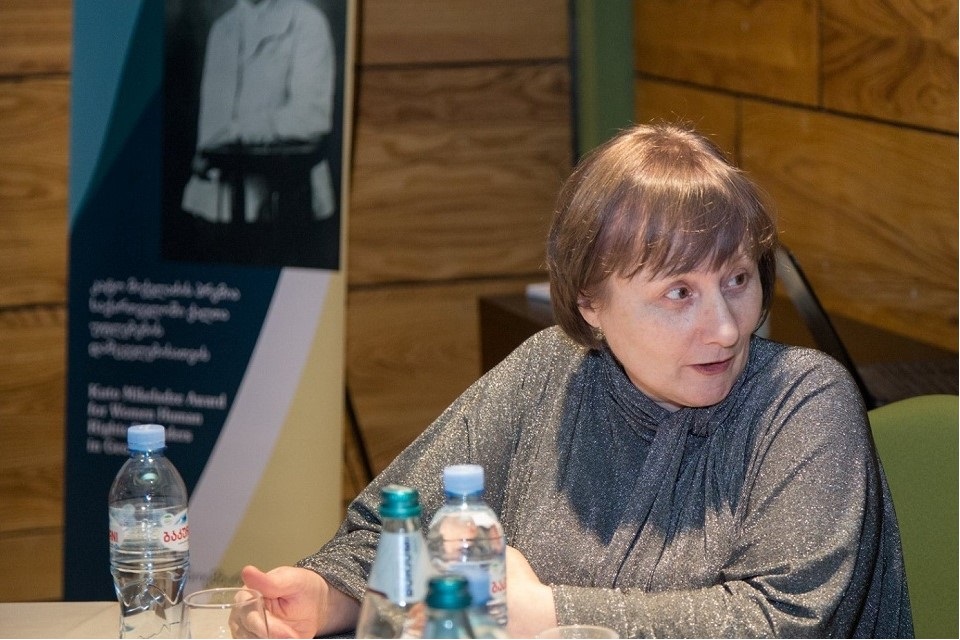In the words of Tamar Macharashvili: “The protection of the rights of women and girls with disabilities should be an essential part of women’s rights agenda”
Date:

Tamar Macharashvili, the head of the organization “Women and Reality”, has been promoting the rights of women and girls with disabilities (WGwD) for more than 20 years. Throughout her work, Tamar strives to ensure that the voices of WGwD are heard loud and clearly. She is one of the founders of a platform working on WGwD issues. The platform was created with the support of UN Women and in partnership with the United Nations Population Fund (UNFPA), within the framework of UN Joint Programme “Transforming Social Protection for Persons with Disabilities in Georgia” and with financial support of the Joint SDG Fund. The platform was established by NGOs “Partnership for Human Rights” and “Women and Reality” and unites about 30 organizations with the goal of supporting the realization of the rights of WGwD and reducing the barriers and challenges that they are facing.
![]()
I am a representative of the WGwD community myself, and I think it would not be right to be indifferent and not to participate in the process of protecting the rights of WGwD. This issue drew my interest as early as 1999, when I first joined the “Georgian Disabled Women’s International Association”. The August 2008 war defining moment is this path. It was then, when the three of us - three friends initiated the creation of a task force which prioritized supporting internally displaced population with special focus on internally displaced WGwD. In 2012, I founded “Women and Reality” - an organization which strives to promote the rights of WGwD in Georgia.
In Georgia, national policy documents fall short of being compliant with the United Nations Convention on the Rights of Persons with Disabilities, [ratified by Georgia in] 2014. It means that the issues which are critical for women and girls are not taken into consideration when the state programmes are developed, nor are they accounted for in the state budget. Among such issues, for instance, is the right to sexual and reproductive health, which is one of the most acute problems for WGwD.
Gender stereotypes that exist in our society hurt women, but they become even more problematic when it comes to WGwD, as WGwD are subjected to discrimination based on not only their gender, but also their disability. It means it is even more difficult for WGwD to claim their fundamental rights and freedoms.
It is important to remember, that we are women first and then women with disabilities; therefore, I think that the protection of the rights of WGwD should be an essential part of women’s rights agenda. We must support and strengthen one another, and I believe that the platform for the rights of WGwD has an important role to play in this direction. Unity and dialogue between women’s rights organizations and women with disabilities organizations will ensure that our voices are heard more loudly and that the rights of WGwD become an integral part of of activism for gender equality and women’s empowerment.”